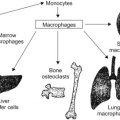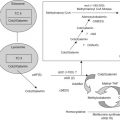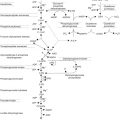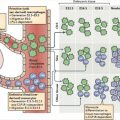Abstract
Throughout the entire course of care, it is of paramount importance to address the psychosocial and educational needs of patients and their families. The diagnosis and treatment of childhood cancer is extremely stressful and frightening for families. As with any life-threatening illness, childhood cancers interfere with the normal developmental milestones of childhood and adolescence and the ability of families to function effectively. Understanding common reactions of children and families at various stages of the illness helps the practitioner communicate more effectively about the diagnosis, treatment, and prognosis and to support the family throughout the process. While no single professional can meet a family’s needs completely, collaborative and multidisciplinary health care team efforts can help family members enhance adaptive coping skills and mobilize their support systems to effectively engage in medical care.
Keywords
psychosocial intervention, medical adherence, education, school reentry, coping, remission, recurrence, end of life, survivorship
Throughout the entire course of care, it is of paramount importance to address the psychosocial and educational needs of patients and their families.
The diagnosis and treatment of childhood cancer is extremely stressful and frightening for families. As with any life-threatening illness, childhood cancers interfere with the normal developmental milestones of childhood and adolescence, and the ability of families to function effectively. Understanding common reactions of children and families at various stages of the illness helps the practitioner communicate more effectively about the diagnosis, treatment, and prognosis, and to support the family throughout the process. While no single professional can meet a family’s needs completely, collaborative and multidisciplinary health care team efforts can help family members enhance adaptive coping skills and mobilize their support systems to effectively engage in medical care.
Time of Diagnosis
A diagnosis of childhood cancer is an acute traumatic event for a family. Many families recall the conversation confirming diagnosis as a turning point in their lives. Preconceptions or past experiences with cancer may lead to immediate thoughts that the child will die. Even if fears about death are not at the forefront, thoughts about a long, painful and invasive treatment course may be overwhelming. The way in which the diagnosis of cancer is presented significantly influences the family’s initial reactions and sets the stage for collaboration with the medical team. The meeting with the family should be held as rapidly as possible once a diagnosis is established. They should be told in advance about the purpose of this meeting so that they can involve those individuals they regard as important to the conversation. The meeting should be held in a private room with seats for all attendees and interruptions should be minimized. Adolescent patients may be invited and included in this meeting. If not, an additional meeting should be set up between the health care team, parents, and the patient to discuss the diagnosis and treatment in a developmentally appropriate way, with time provided to answer the patient’s questions. The oncologist must present the diagnosis of cancer in an empathic and unequivocal way, tailored to the cultural and educational characteristics of the family, patient, and situation. A member of the treating facility’s mental health team, such as a pediatric psychologist, child life specialist or social worker, should attend. If the family has developed a particularly strong and trusting relationship with another staff member, such as a nurse, they should be invited for additional support. Information should be accurate and clearly communicated without the use of medical jargon or euphemisms. Having basic information prepared in written form to review together can be helpful in allowing them to listen and take in the message rather than only focusing on trying to memorize specific details. This summary should be specific, brief and written in easily understood terms, and include wide margins for notetaking.
Parents are often uncertain about how to talk with their younger children about the diagnosis, treatment, and prognosis. Parents must talk to their children openly and honestly about the cancer and treatment that they will receive in order to increase trust within their relationship and between the child and medical team. Open communication helps their children to feel more secure and less anxious. It is typically not necessary to include information on the detailed biological processes, statistics, or in-depth medical terminology. Children should be told the truth in developmentally appropriate terms, focusing on what their experience is likely to be. The word “cancer” and the specific name of the diagnosis should be used in order to demystify the terminology and save the patient from hearing them from others and feeling as if this information had been hidden from them. The conversation should not be rushed, and any questions should be answered honestly and gently. If the parent does not know the answer, they should say so and tell the child that they will consult with staff to get an answer. Parents may need to be coached as to when and what to say to be most effective. Oftentimes, families ask that a staff member such as a child life specialist or pediatric psychologist coach them or join them in telling the child. Whether the staff participates directly or helps the parents in preparing for the conversation, the health care team needs to support and reinforce their competence as parents, while helping them to develop their ability to support their child through the medical crisis with honesty and trust.
The family’s reactions will determine the pace and flow of the conversation. Table 35.1 provides common reactions and suggestions for working with children at different developmental levels at the time of diagnosis and throughout cancer care. Table 35.2 provides common parental reactions and suggestions for psychosocial intervention throughout the care of the patient.
| Developmental stage | Common reactions | Suggestions for psychosocial support |
|---|---|---|
| Preschoolers | May exhibit fears regarding unfamiliarity with hospital. Regression (i.e., loss of developmental milestones or return to previously discarded behavior) is common, as is a slow-down in meeting new developmental milestones. Child may experience a heightened dependence on parent (i.e., wanting to sleep with parents). Fears of abandonment may be seen. Many young children perceive treatment (i.e., painful procedures) as punishment or retribution for wrong doing. Sleep disturbance (i.e., refusal to go to bed, fitful sleep, nightmares) may also occur | Address concerns about all procedures, even temperature taking, by giving a brief, honest description explaining the treatment. Provide positive incentives for cooperation with procedures. Maintain gentle and positively focused discipline. Teach breathing exercises and developmentally appropriate distraction techniques during procedures, such as storytelling, fantasy play, and puzzles. Engage child life specialist in preparing the child for, and supporting the child and parents through, procedures. The child should be allowed to engage in medical play and to visit operating and recovery rooms if undergoing surgery to become familiar with surroundings. Developmentally appropriate toys and activities should be provided throughout inpatient stays and outpatient visits as young children benefit greatly from free play |
| School age | Reaction to diagnosis may be delayed or immediate and anxiety-ridden. Many children exhibit adaptive and efficient coping styles. Younger children may display any or all reactions listed for preschoolers. Psychosomatic complaints, nightmares, stoic-like acceptance, and labile emotions may all be seen. Child may pose difficult questions such as reasons and cause for treatment and diagnosis | School-age children may be interested to learn about various aspects of their illness and treatment at a developmentally appropriate level. They can be taught how to manage stress associated with procedures by developing self-regulating skills through breathing and imagery. The physician may forge a strong positive working relationship with school-age children by taking time to sit and answer questions. The child should be educated that their emotional responses are common and acceptable. Refusal to cooperate with treatments or restrictions should be met with consistent and lovingly applied discipline |
| Sadness, fear, and worries of being different from peers due to physical changes and school absences may be expressed. Lowered self-esteem and confidence levels may initially be noted. The child may ask, “Why me?” and complain, “It’s not fair!” | Maintaining friendships, continuing academic progress, school reentry, and other issues should be actively addressed by psychosocial staff | |
| Adolescents | Many adolescents exhibit adaptive and efficient coping styles. Initial questions may be general (i.e., geared towards causation and prevention of disease) or more personal (i.e., individual treatment plan; disruption to social life). They experience a loss of independence, which can threaten their developing autonomy. Nonadherence may occur as an attempt to regain a sense of control. Many feel self-conscious about appearance and emerging sexuality (i.e., hair loss, treatment-related delays in puberty, scars). Fear of being different from peers may interfere with school/social scene reentry. May avoid intimate relationships with peers. May reconsider long-term career and family plans and expectations. Concerns about fertility are likely. Feelings of isolation and vulnerability may lead to social withdrawal, hesitancy, and sadness | Allow and encourage adolescents to participate in medical decisions (i.e., signing consents/assents when appropriate, control with scheduling, permit them to see tests, involve them in discussions of alternative treatments). Offer group support and individual counseling by psychosocial staff whenever possible. Encourage patient to maintain active participation in daily activities. Ensure academic program is appropriate to help adolescent reach their long-term life goals. Teach special skills for stress reduction, such as breathing, imagery, and relaxation training. When possible, arrange schedule to allow participation in major life/social events (i.e., prom, graduation service). Family therapy may be appropriate to address issues of autonomy |
| Treatment stage | Common reactions | Suggestions for psychosocial support |
|---|---|---|
| Diagnosis and initial treatment | Most experience shock, disbelief, fear, guilt, and anxiety. It is common to feel overwhelmed with new medical terminology and information and the need to make rapid treatment decisions. May experience frequent crying, difficulty sleeping, intrusive thoughts, and/or continued sense of stress. Often seek reassurance that their child “will survive” | Be factual and empathic. Allow time for questions and answers. Educate family on common reactions and feelings. Support parents in their request for time to talk with other family members and to seek a second opinion. Be sensitive to cultural beliefs and norms. Provide verbal and written information. Repeat information with compassion as parents/caregivers will need to review information in order to assimilate it |
| Provide guidance on ways to communicate diagnosis to the child with cancer, the sibling(s), family, and friends. Prepare parents for possible delay in emotional reaction (themselves or their child(ren)). Help promote open communication in the family. Encourage parents to have their child, particularly adolescents, participate in medical decisions (i.e., signing consents; when appropriate, control with scheduling, permit them to see tests). Address logistical issues such as taking leave from job, childcare for siblings, financial issues, etc. With parent’s permission, develop relationship with patient’s school and begin to develop new academic plan with regard to home/hospital instruction, attendance at school, grade promotion vs. retention, assessment for special services, etc. | ||
| Remission | Fear of relapse is common, often parental anxiety increases in phases of less intensive treatment/end of treatment. Financial strains may become a key issue. Exhaustion as parents try to return to work and family activities while caring for the child with cancer. May become concerned about strain on relationships with other children, spouse/partner, etc. as the early crisis phase of treatment required their full attention. May become more lax in following through with medical appointments and medication schedule | Monitor family communication and coping. Encourage parents to maintain active participation in healthy daily activities. Educate regarding typical emotional shifts. Teach stress reduction such as breathing, imagery, and relaxation training. Refer for psychosocial support services and organizational support with regard to financial needs. Family therapy may be appropriate to address communication, behavior, or relationship issues. Suggest parents monitor adherence |
| Recurrence | Fear, anxiety, sadness, tearfulness, anger, difficulty sleeping. An urgent need to explore all treatment options. Concern how to best communicate information to the child with cancer and/or siblings | Monitor symptoms and offer counseling, particularly when symptoms interfere with ability to cope. Discuss treatment options openly and support family in obtaining second opinion as desired. Assess family communication. Encourage parents to include their child in medical decisions and, when appropriate, including end-of-life decisions as needed. Balance additional treatment with quality of life. When indicated, shift focus from “cure” to symptom control/palliative care. Refer for hospice services when end-of-life discussions begin. Encourage siblings to attend family conferences. Assist family in examining what is meaningful about the patient’s goals in general terms (i.e., “go away to college” might be reframed as “I want to travel and learn”) and identifying ways to continue to provide opportunities for growth and development rather than focus on activities/events/specific goals that may not be realistic and therefore experienced as a “failure.” Offer psychosocial support to all family members |
| Bereavement | Most families wish to maintain a relationship with the primary oncology team | Send a personal note to the family. Staff members that attend service/funeral can represent entire team. Provide selected reading materials about bereavement to parents, siblings, grandparents, and extended family members, classroom teachers, and others who knew the child well. Be aware of differences between “normal” grief reactions and those that are nonresolving and require counseling. Offer information on how to connect with other families who have lost a child, if the family desires. Support family’s efforts to give back to the community |
| Families appreciate the opportunity to keep their child’s memory alive by sharing experiences with those who knew their child during his/her illness. Many families choose to facilitate donations to treatment/research/support organizations or start a charity in their child’s memory | ||
| Survivorship | Sense of relief along with ambivalence and fear of recurrence. Anxiety about decreased contact with medical team | Normalize emotional responses to end of treatment. Address realistic expectations regarding a quick “return to normal.” Monitor family adjustment. Assess for psychological distress and offer psychological services when indicated. Have follow-up care arranged and provide education on potential late effects of cancer treatment. Monitor academic, social, and emotional functioning at follow-up appointments, and intervene where needed |
Despite knowing that cancer is a possibility prior to the family meeting, most family members report feeling shocked at the news confirming diagnosis. Disbelief, denial, confusion, sadness, grief, guilt, anger, helplessness, anxiety, and fear are all common reactions. Parents perceive their role as providing for their children and protecting them from fear, hurt, pain, and death. The diagnosis of cancer threatens that identity and sense of adequacy as a parent. Many family members report that they were unable to hear or comprehend any information from this first meeting beyond the naming of the diagnosis, as they were lost in their own thoughts and emotions. Some report feeling as if they were watching the meeting happen from a distance. Severe emotional reactions are normal and should be expected. As the cancer diagnosis is accepted, these emotions go through a process of evolution. Anger can become a significant emotion and it is common for someone feeling so overwhelmed to want to regain a sense of control. Parental anger may even be directed at the treatment team. Guilt is also common, and family members may pass through a period of self-blame during which they focus on transgressions they feel they may have committed and for which they feel they are now being punished. Careful listening and supportive attention by the team are important to reassure family members that they did not cause the cancer. This includes siblings, grandparents, and other relatives.
Treatment decisions need to be made quickly after the diagnosis is known. This requires the family to absorb and understand significant amounts of medical information, including weighing the risks and benefits of treatment research protocols. Families may want time to seek other medical opinions, consult with additional family members and friends, and conduct their own searches for information. These efforts may be appropriate to ensure that they are doing what is best for their child and they should be encouraged to seek a second opinion from a qualified and reputable oncologist if they so desire. It is likely that the second opinion will confirm the proposed treatment plan, and the family will gain confidence in their decision to proceed with the team’s recommendations. They should be discouraged from selectively talking to those who promote unrealistic hope or provide inaccurate information. The best way to support the family during this time is to repeat and reinforce what is known in regard to the diagnosis and treatment options, build a partnership through rapport and the encouragement of family participation in the conversation, and recognize and attend to the family’s level of distress, while gently encouraging their competence and ability to make a good decision. It is important that multiple conversations occur with the family in which different members of the team provide the same information to ensure the family understands the information and has opportunities to express their questions and concerns.
Psychological problems and/or developmental differences in the patient or any family member add significantly to the burden of dealing with cancer and can exhaust a family’s time and emotional and financial resources. Even minor symptoms can be reactive, at least in part, to the stresses and disruptions of the cancer diagnosis and treatment course. An assessment of the family’s strengths and vulnerabilities, psychosocial resources, and preexisting problems, can help the team anticipate the psychological adjustment and provide a means for quickly and efficiently providing psychosocial care based on their need. Several factors such as prior diagnosis of depression or anxiety, general “poor coping,” or nonadherence to treatment indicate that it is appropriate to make a referral for psychological treatment. Other families seek psychological services as a “preventative” measure for their children, in order to have additional support and to help guide them as parents in this arena. Potential therapeutic interventions include individual expressive and/or play-based psychotherapy or cognitive-behavioral therapy (CBT) for the child, support groups and family therapy for members of the family, or a combination of approaches. Other therapeutic approaches appropriate for the early stages of treatment and beyond include art and music therapy. While not all families want or need such services, they often add a crucial dimension to comprehensive care.
Stay updated, free articles. Join our Telegram channel

Full access? Get Clinical Tree







